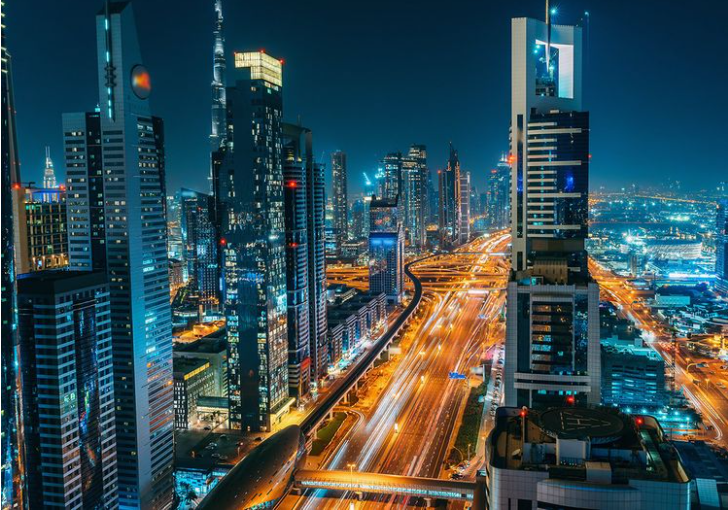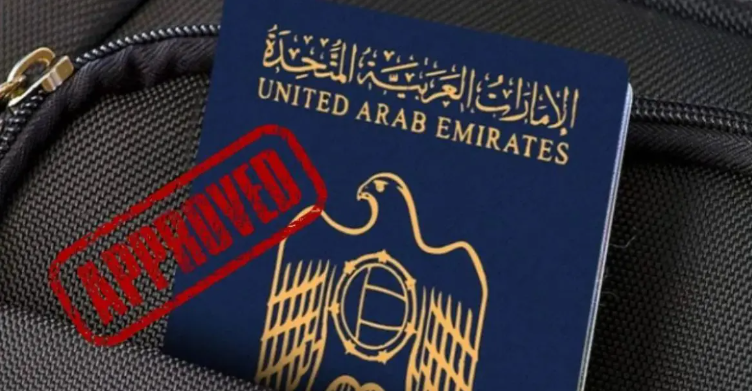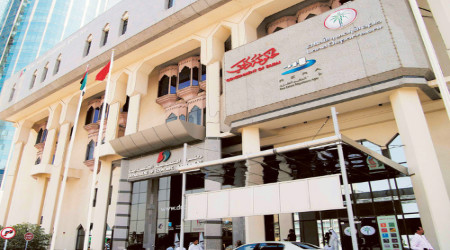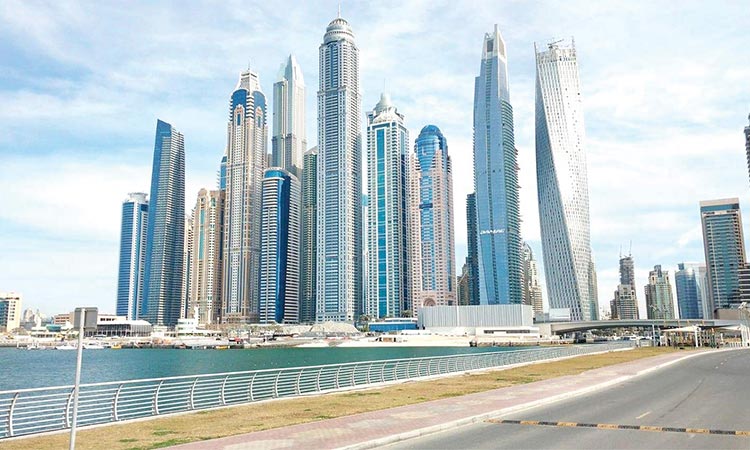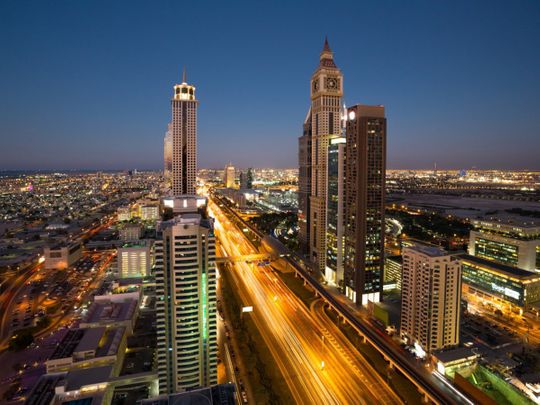
Through the years, we have witnessed Dubai introduce a string of initiatives, encompassing simplified financing, low mortgage rates, and swift enactment of policies to further its dynamic economy.
Its leadership also played a pivotal role during the outbreak of the pandemic by setting prudent examples of how a global powerhouse can navigate dire challenges and protect the gains of its economy and the interests of stakeholders - which include local and international companies, SMEs, and homegrown enterprises - and paving the way for them to catapult their businesses to greater heights.
We saw overseas buyers flocking into the city to invest in the real estate market while resident-renters became first-time homeowners. This trend stemmed from a broad spectrum of benefits to trade, tech advancements, safety, and healthcare, which, in unison with the robust macroeconomic fundamentals, consolidated the emirate’s position as a global hub for businesses and tourism that never ceases to amaze.
That said, the latest expansion of the Golden Visa coverage will play a fundamental role in attracting overseas buyers and spurring demand for real estate projects.
A consumer-centric transformation
Understanding the shifting demographics related to global social and economic transformations help us make sense of the world we live in. The rise in migrations is indicative of a global economic resurgence and disproportionate rise in economic opportunities across competing geographies.
Capitalising on the rise in migration and talent-driven economic development, the UAE introduced a Golden Visa scheme for a wide array of exceptional individuals who meet certain eligibility parameters. The new visa scheme strengthens the UAE’s position as an ideal destination to live, work, and invest in.
With the surge in demand from property investors and resident homeowners, the Golden Visa scheme has been expanded to cover those who invest or purchase a secondary or off-plan property for Dh2 million.
The recently updated 10-year UAE Golden Visa regulations are a fantastic initiative to stimulate real estate investment even further, especially with the flexibility associated with the new rules, all of which will prompt residents as well as overseas RoI-chasing ‘hunters’ to invest in the country for the long term and allow non-residents to make the UAE their second home.
Facts behind the figures
The real estate market is at the outset of a pronounced upward trajectory. The market is still considered a buyers’ market, with undervalued real estate and prices in Dubai being more attractive than in other large metropolises.
Match buyer expectations to budgets
Affordability is a driving force to furthering the real estate market, according to the results of a poll conducted by Reuters. Housing prices in Dubai are expected to rise steadily over the next two years, driven by demand from foreign investors attracted to depressed prices of properties.
However, analysts caution that higher interest rates and a lack of affordable homes might curb the volume of deals to some extent. In terms of transaction volumes, Dubai’s real estate market recorded over Dh170 billion from January to June 2022. Sentiments in Dubai’s real estate sector have remained optimistic and reached an all-time high owing to new visa-related initiatives and regulations to attract foreign direct investments. A resultant surge in transaction values and volume in terms of rent and property sales is expected to continue momentum till the end of year.
Accept lower mortgage growth
We expect slower growth in mortgage transaction volumes due to interest rate hikes, which will be partly offset by favorable payment plans. While geopolitical tension is a primary risk, we expect Dubai will attract interest as a safe haven for wealthy individuals to establish their footprint.
Additionally, the supply-demand dynamics in Dubai’s real estate market has transformed significantly compared to how it used to be. This is largely due to the right kinds of units being offered, in terms of location, connectivity, amenities, build quality, and scenic views, which are seeing substantial demand and are selling out rapidly, despite the notion of oversupply.
Moreover, environmental, social, and governance standards will play an instrumental role in investment and purchasing decisions in the immediate future. Dubai’s gains in the transparency ranking, led by new regulations around market-leading practices, beneficial ownership tracking and sustainability reporting, and enhanced digital services will redefine the market and attract overseas buyers as well as new purchasing behavior patterns.
source-www.reuters.com
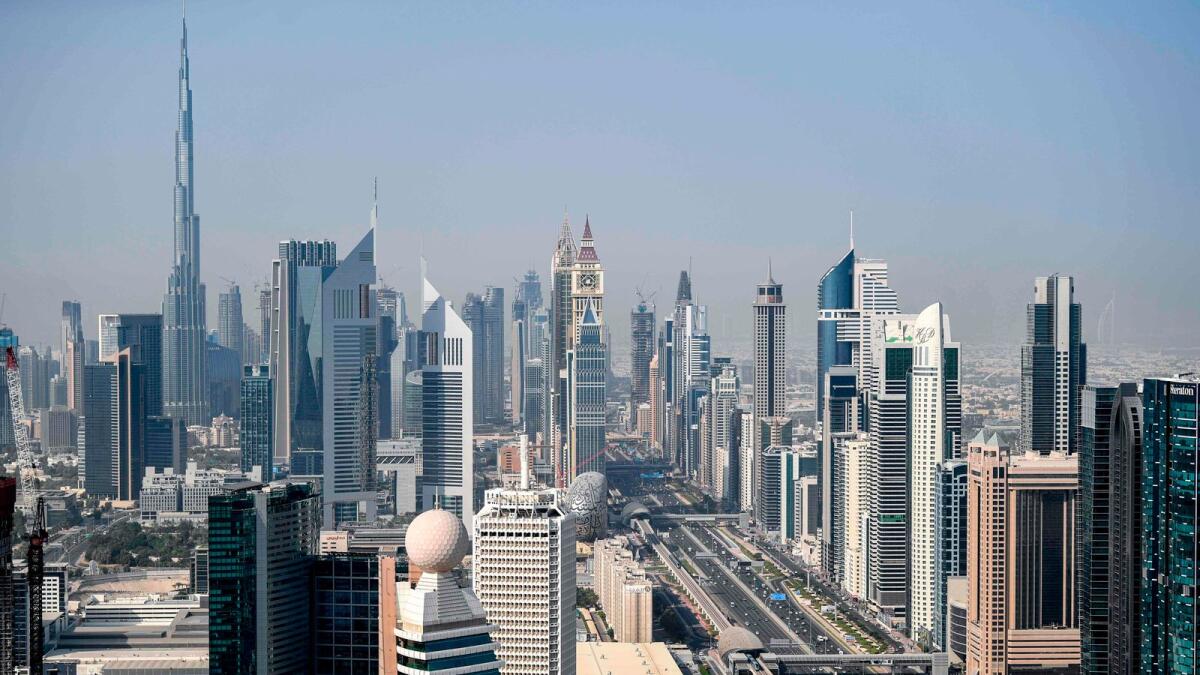
The government’s recent measures on real estate investment will increase market credibility, transparency and boost investor confidence in the growing sector, experts say.
Analysts, executives and developers said the government’s actions such as new reporting requirements for property transactions and strict rules on real estate advertisements will bring stability in the market that already attracted investments worth more than Dh170 billion during the first seven months of this year. They expect investment in the UAE property market will exceed Dh300 billion by year-end.
Referring to official statistics, the market experts said Dubai real estate will continue to register growth as it attracted Dh135.5 billion investment during the January-July 2022. In addition, Abu Dhabi and Sharjah also registered Dh22.38 billion and Dh11.2 billion property transactions, respectively, during the first half of 2022.
Real estate activities are estimated to generate about 5.5 per cent of the UAE’s overall gross domestic product (GDP) annually. The UAE’s residential real estate market is expected to post a compound aggregate growth rate of more than eight per cent during 2022-27, according to Mordor Intelligence.
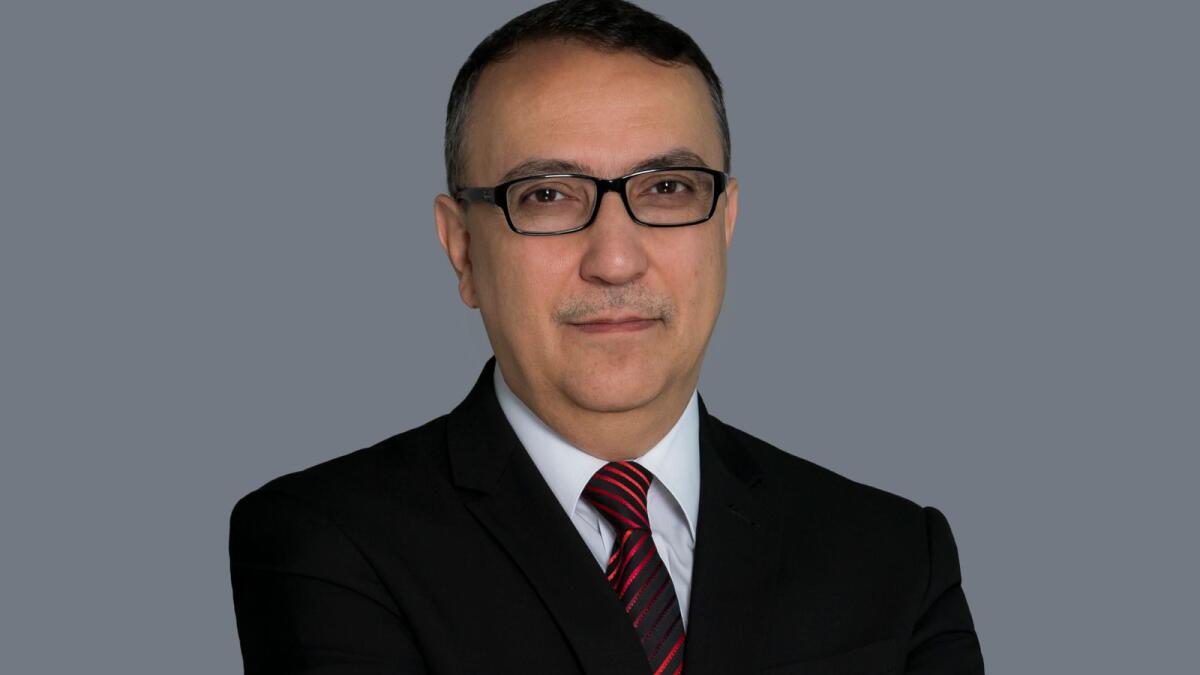
Investor confidence, market maturity
Haider Tuaima, director and head of Real Estate Research at ValuStrat, said recent government measures will not slow down growth in the sector.
“The simple answer is no,” Tuaima said in response to a question about new reporting requirements for property transactions and strict rules on advertisement may impact the growth of the sector.
“Enhancing regulations by tightening rules on property advertisements can only increase market credibility and transparency, this potentially boosts investor confidence going forward,” he said.
Robert Thomas, head of Agency at real estate consultancy Core, said new measures will bring maturity to the market.
“No, on the contrary, we expect it would further mature the market and these regulations will filter the market with qualified listings and product offerings,” he said.

More investment coming
Yousuf Fakhruddin, CEO, Fakhruddin Properties, echoed the similar views and said property sector will attract more investment due to timely government action to further enhance transparency in the market.
“The UAE has always been at the forefront of implementing measures to ensure better economic and business practices. The new reporting requirements further make it a more secure environment for property investors, which we hope will drive their interest in real estate opportunities even further,” Fakhruddin told Khaleej Times.
In our opinion, he said the government's move to increase regulation in the real estate sector is a positive one.
“This will help to protect buyers and investors and create a more stable and transparent market and in the long run, this will encourage sustainable growth in the sector. The new regulations are a positive step forward for buyers' rights. It provides greater clarity and protection for investors, and we believe this will lead to increased confidence in the rental market” he said.
Ata Shobeiry, CEO at Zoom Property, also welcomed the government’s policy measures and said it would benefit the sector.
“I believe these requirements will make the Dubai property market safer for both sellers and buyers. Therefore, it will encourage more investment in the sector,” he said.
Growth drivers
Market experts said the real estate market will sustain an upward trend in the remaining part of this year due to various growth drivers such as visa reforms, consistent policies, ease of doing business measures and future planning, among others.
“Strategic decisions put into action by the government since 2019, balancing supply and boosting demand in addition to the 2040 urban plan and enhancing market transparency by openly sharing transactional data, all this helps drive the property market towards more healthy and sustainable growth,” Tuaima of ValuStrat said.
Shobeiry of Zoom Property also reposes trust in the future of the market and said various factors will drive the market in coming months.
“The reformed visa rules, investor-friendly policies, and the stability it offers to investors are some major factors that will drive the property market throughout the rest of 2022 and beyond,” he said.

A favourable investment destination
Thomas of real estate consultancy Core said Dubai’s continuing positive handling of Covid, pro-business and tourism environment and ongoing visa reforms have made it an attractive proposition for both residents and international buyers.
“With strong transaction activity along with rising occupancy levels, the supply-demand dynamics is at a relative equilibrium. Furthermore, buyers have the option to choose from a wide array of products across entry points with property-linked visas, making Dubai a favourable investment destination,” he said.
Fakhruddin also see bright prospects for the real estate sector ahead.
“In a perfectly placed and progressive country like the UAE, there are quite a few drivers of growth for the Dubai property sector. Fact that the UAE is a global nation ready to welcome people from any country in the world has enabled more people set up new businesses to move here and call it home,” he said.
“The way this country provides for everything from lifestyle to luxury to the residents, has fostered an optimistic sentiment amongst expats wanting to live and invest in the country. The recent increase in the number of new business and employment visas in the private sector reinforces the belief for the sector,” he said.
source-www.khaleejtimes.com
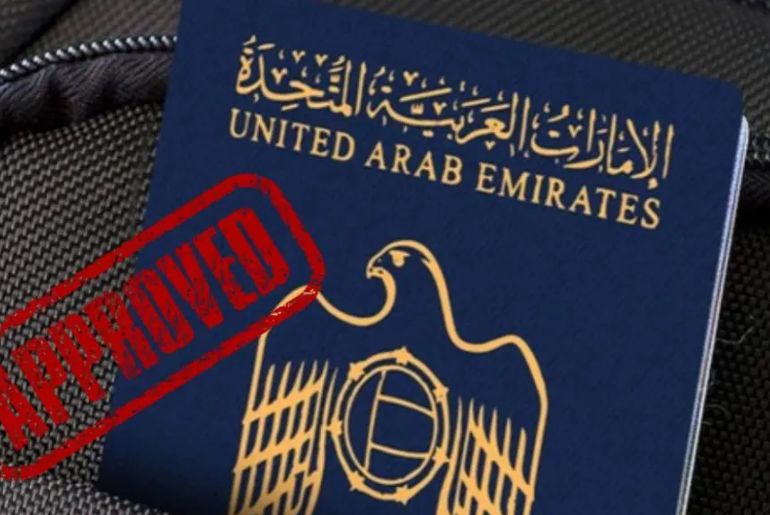
UAE recently eased its golden visa norms making it easier for people in the foreign countries to buy property here. The Golden visa users are allowed to stay for 10 years unlike 5 years as earlier and reduced the investment needed from AED 5 million to AED 2 million. According to real estate advisors, more Indians are choosing to buy a second home in Dubai and other emirates as a result of the changes announced.
Real Estate Developers In Dubai Have Begun Expos In India
The emirates recently brought in changes with respect to the golden visa norms and the wealthy Indians see this as a long term profitable opportunity interesting them to invest in properties in Dubai. Dubai attracts most of the demand and so the real estate developers have already begun expos in India to make the Indian buyers aware of the new rules and regulations and also the benefits of the same. India Sotheby’s International Realty’s director for international business, Akash Puri said that the simplest way of securing a golden visa and investing is by buying a house as Dubai has no capital gain tax.
Also Read: Golden Visa Holder In UAE Can Now Enjoy These Additional Privileges
Inquiry For Property In Dubai Increased
For Indians looking to invest in Dubai, many Indian brokerage firms have started hosting property expos, and the response has been amazing. The data shows that the sale of property in Dubai increased by 60% in the first half of the year 2022. The luxury homes in Dubai have become more attractive owing to lower price points. Inquiries for properties in Dubai increased by 10-12% in the first half of 2022. Another factor to drive the demand for property in Dubai is its proximity to India.
:quality(70)/cloudfront-eu-central-1.images.arcpublishing.com/thenational/NIG2AYXOBVARPOAETSII3A42D4.jpg)
source-curlytales.com

DUBAI, July 29 (Reuters) - Dubai's red-hot property market surged in the first half of the year as investors piled in, with Russians among the top five buyers as the emirate benefits from an influx of wealth in the wake of Western sanctions.
The first half saw residential real estate transaction volumes up 60% with an 85% rise in the value of properties sold, property consultancy Betterhomes said in a report.
The top buyers were from India, the United Kingdom, Italy, Russia and France, in that order, followed by Canada, the United Arab Emirates, Pakistan and Egypt tied in eighth place, Lebanon and China.
The number of Russian buyers surged 164% in the first half of this year from the first half of 2021, Betterhomes said in response to a Reuters query. The numbers for France and Britain rose 42% and 18%, respectively, while those from India fell 8% and Italy dropped 17%.
Demand was boosted by geopolitical instability in Europe and mortgage buyers looking to get in ahead of well-telegraphed interest rate hikes, Betterhomes said.
Reuters reported earlier this year that Russians were pouring money into Dubai properties, seeking a financial haven in the wake of Western sanctions on Moscow over its invasion of Ukraine. read more
"The market has faced growing headwinds in the form of rising interest rates and a strengthening dollar, but has so far proven to be robust with little sign of slowing," Betterhomes said.
In the first half of the year, a record 37,762 units were sold, it said, citing Dubai Land Department data, with residential property market transactions totalling nearly 89 billion dirhams ($24.23 billion).
Dubai's property market began recovering from 2020's severe downturn early last year with buyers snapping up luxury units after the emirate eased pandemic restrictions faster than most cities around the world.
However, S&P Global Ratings said in October that Dubai's real estate recovery was fragile and uneven, and an oversupply of residential properties would pressure prices in the long run.
Luxury property transactions were up 87% compared with the first half of last year, with apartments making up 62% of all transactions, Betterhomes said.
Investors dominated sales, making up 68% of all buyers, up 10% compared with a year earlier.
source-www.reuters.com

Dubai: Dubai’s real estate market recorded a total of 8,897 sales transactions worth Dh22.75 billion, the highest volume of sales transactions for the month of June in the past nine years, according to Mo’asher, Dubai’s official sales price and rental performance index.
Around 60 per cent of all sales transactions recorded were for secondary properties and nearly 40 per cent were for off-plan properties. The period also witnessed a 34 per cent increase in terms of volume and a 24.8 per cent increase in terms of value, compared to May 2022.
The off-plan market transacted 3,554 properties worth a total of Dh7.06 billion and the secondary market transacted 5,343 properties worth Dh15.69 billion. In comparison to the same period last month, the number of off-plan transactions in June increased by 28.96 per cent, and the secondary property transactions increased by 38 per cent.
The second quarter of 2022 marked the highest quarterly volume of sales transactions for the last decade with a total of 22,504 transactions worth Dh59.15 billion. Comparing the quarter-on- quarter data, Q2 obtained 9.6 per cent more in terms of volume and 6.8 per cent more in terms of value.
According to Property Finder data, the top searched areas for apartment rentals in June were
Dubai Marina, Downtown Dubai, Business Bay, Jumeirah Village Circle, and Jumeirah Lake Towers, while the top searched areas for villa/townhouses were Dubai Hills Estate, Jumeirah, Al Barsha, Akoya, and The Springs.
In June, the overall monthly Index for sales recorded 1.323 and an index price of around Dh1.29 million. The apartment monthly index recorded 1.393 and an index price of Dh1.2 million, additionally the villa/townhouse monthly index recorded 1.347 and an index price of about Dh2.2 million
Furthermore, the overall monthly index for rental in June 2022 recorded a 0.971 and an index price of Dh52,498. The apartment monthly index recorded 0.974 and an index price of Dh48,226 and the villa/townhouse monthly index recorded 0.870 and an index price of Dh133,330.
In Q2-2022, the overall quarterly Index for sales recorded 1.328 and an index price of around Dh1.27 million. The apartments quarterly Index recorded 1.352 and an index price of Dh1.15 million and the villas/townhouses quarterly Index recorded 1.264 and an index price of Dh2.11 million.
Furthermore, the overall quarterly index for rental in Q2-2022 recorded 0.968 and an index price of Dh52,133, the apartments quarterly Index recorded 0.979 and an index price of Dh47,764, and the villas/townhouses quarterly Index recorded 0.858 and an index price of Dh133,085.
source-www.reuters.com

The UAE has seen property prices recover from Covid-19 thanks to a rise in oil prices and an increase in relocations, notably from Russia.This is the main finding from a report published by ratings agency Fitch.It describes the UAE real estate market as “anaemic” during the pandemic. In 2020, Dubai’s population fell by 8% as many in the expat community which makes up around 90% of the population were forced to emigrate after losing their jobs.However a successful vaccination programme enabled UAE to open up earlier than other countries and, along with liberalised residency rules, Dubai’s population grew by 2% in 2021.Furthermore, an influx of skilled workers along with a rise in oil prices has seen an increase in Dubai residential property sales by 81 in Q1 year-on-year and a 125% rise in the value of property transactions.However Fitch also warns that not every sector in the UAE’s property market has seen a return to pre-pandemic levels – Dubai’s office market may take several years to recover due to an oversupply.
source-www.fundsglobalmena.com
source-www.gulftoday.ae

:quality(70)/cloudfront-eu-central-1.images.arcpublishing.com/thenational/NIG2AYXOBVARPOAETSII3A42D4.jpg)
source-www.thenationalnews.com
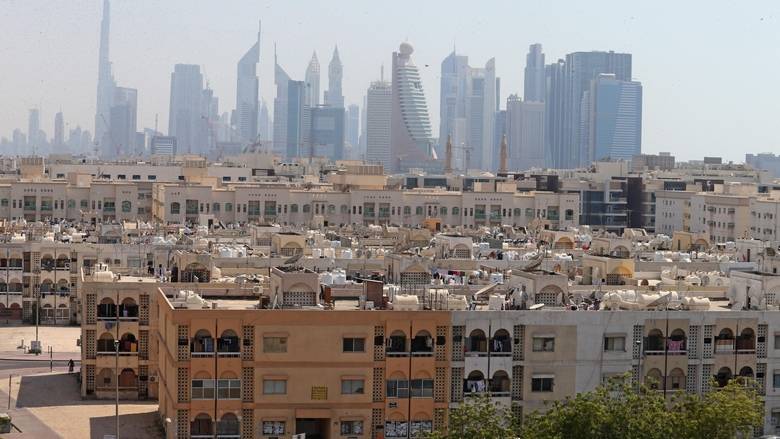
:quality(70)/cloudfront-eu-central-1.images.arcpublishing.com/thenational/NIG2AYXOBVARPOAETSII3A42D4.jpg)
Bolstered by strong capital growth, high yields and government-led initiatives that incentivises investment in the property sector, Dubai continued to be a prime target for investors, according to Betterhomes, a leading property consultancy.
All segments of Dubai’s real estate market recorded growth in the first half of 2022 with sales transactions and values holding up well, Betterhomes said in its H1 2022 Dubai Real Estate Market Report.
“Despite headwinds in the form of rising interest rates and a strengthening dollar, Dubai’s real estate market remained busy and robust in the first half of 2022,” it said.
Indians topped the list leading buyers by nationality with those from the UK, Italy, Russia and France rounding the top five, according to the report.
Setting a new record for transactions in the Dubai, DLD (Dubai Land Department) recorded 37,762 total units sold from January through June this year, which is 60 per cent higher than the same period in 2021. There was also an increase of 85 per cent in the total value of sold properties compared to H1 2021.
Richard Waind, group managing director, said while globally, many real estate markets are showing signs of slowing down in the face of rising inflation and the inevitable response in the form of rising interest rates, he is confident that Dubai market “is uniquely placed to weather any short-term storm and, as we have shown throughout the pandemic, could well be a net beneficiary of global uncertainty".
He said the UAE could well be a net beneficiary of global uncertainty. High oil prices improved the UAE’s fiscal position.
“And while rising interest rates will undoubtedly have an impact, our market is less exposed to mortgages than in the majority of the world, and the typical Dubai consumer is perhaps in a better position to tolerate this normalisation of rates,” said Waind.
“Rising taxes, inflation and geopolitical instability in the West, and continuing Covid restrictions in the East, are likely to continue to push more expats to relocate to the UAE. Dubai will continue to reform employment and visa regulations to attract talent, and the DLD has taken great steps this last six months by making available all real estate data to consumers, improving transparency, and giving investors greater confidence to invest,” said Waind.
Waind said that prices in the market are showing signs of normalizing.
“Supply constraints in the secondary market have shown signs of easing in this last six months as sellers have looked to realise recent price increases. Further, developers have responded to the improved market conditions by increasing launches and bolstering the off-plan market.”
“Over the second half of the year, we can look forward to cooler weather and the World Cup, which is bound to again bring many new visitors to these shores. We will see interest rates continue to rise over the coming months, and we expect both rents and sales prices to continue to go up modestly for the remainder of the year. But historically, rates and prices still remain low, while yields and capital growth are strong, so for those taking a long-term view, Dubai real estate remains one of the best investment opportunities available,” he said.
While buyer demand increased by 23 per cent versus H1 2021, signed MoUs increased by 138 per cent year-on-year basis. Townhouses saw the highest rise in listings by 141 per cent, followed by apartments with an 18 per cent increase, while villa listings saw a modest growth of 2.0 per cent.
According to the report, investors made up 68 per cent of all transactions versus end users at 32 per cent. Some 31 per cent of transactions were mortgage-backed purchases.
Average rental prices for apartments and townhouses climbed by 29 per cent and 33 per cent and villas rose by 64 per cent, while occupancy rates in freehold areas increased to 90 per cent and leasehold areas increased to 86 per cent.
source-www.thenationalnews.com

- Dubai and Abu Dhabi recognized as top global improvers in 2022, benefitting from a concerted government focus on improving market transparency
- Dubai enters ‘Transparent’ tier status for the first time driven by new regulations and enhanced digital services
- Kingdom of Saudi Arabia maintained its position in the top 50 global rankings
Dubai, UAE: The real estate markets of Dubai and Abu Dhabi have been recognized as the top global improvers in 2022, according to JLL’s latest Global Real Estate Transparency Index (GRETI). Dubai also entered the ‘Transparent’ tier for the first time underlining its position as the most transparent property market in the Middle East and North Africa region. The emirate gained three ranks in the index to 31st position globally and is the only property market in MENA to feature in the ‘Transparent’ tier.
Dubai’s gains in the transparency ranking are led by new regulations around market lending practices, beneficial ownership tracking and sustainability reporting as well as enhanced digital services and data provision such as service charge management, automated valuations, and transactions databases through the Dubai REST platform. The gain in ranking also builds on the new initiatives announced by the Dubai Government with private companies such as transaction-based sales indices and a building wellbeing certification.
HE Sultan Butti bin Mejren, Director General of Dubai Land Department, said: “With the global recovery of the economy, we recognized the need to focus on improving market transparency to make better decisions that will support both developers and investors alike. Today, investors from around the world are increasingly looking at Dubai’s real estate to invest, and we, at Dubai Land Department, are committed to enhancing transparency within the sector.”
Bin Mejren added: “We are pleased that Dubai has entered a new phase of transparency and is the only city to do so in the MENA region. The government’s ongoing efforts that are driving digital services and data provisions, new regulations and sustainability reporting have helped advance Dubai’s ranking in this year’s Global Real Estate Transparency Index, which is an important guide used for cross-border investment and corporate occupiers to inform their decision making.”
Abu Dhabi, which ranked 45th globally, gained one rank and maintained its position in the 'Semi-Transparent' tier. The improvements reflect the expansion of digital services through the Dari platform including sales and lease management and development and transaction databases. The Department of Municipalities and Transport (DMT) also published its first code of ethics covering real estate professions, and the property market has benefitted from increased data provision by private providers in new sectors, the report states.
Thierry Delvaux, Chief Executive Officer at JLL, Middle East, Africa and Turkey said: “Our 12th Global Real Estate Transparency Index comes at a time of significant change across nearly every aspect of the global real estate market. Faster progress and greater global alignment across industry initiatives and standards are needed to meet growing pressure from companies, consumers, investors and the public for higher levels of transparency. This year, Dubai and Abu Dhabi have been recognized as top global improvers, benefitting from a concerted government focus on improving market transparency.”
Saudi Arabia maintained its position in the top 50 of the global rankings, reinforcing its position at a regional level. The kingdom scored particularly well in the category of Listed Vehicles’ Corporate Governance transparency. This is due to a combination of the solid REIT regulatory framework in place (introduced in 2016) and its listed vehicles having good-quality financial accounts, data disclosure and corporate governance practices. KSA also scored well on its Investment Performance transparency – for the listed market, it has the Tadawul Real Estate Development Index and several of its REITs are constituents in the FTSE EPRA NAREIT Global REITs Index.
According to the report, a common aspect of the changes taking place across global real estate markets is the need for greater harmonisation and alignment in sustainability initiatives, regulatory environments, technologies, and data frameworks.
Many companies are focusing on the Environment, Social and Governance aspects of their business, and more regulations and metrics to enhance and provide guidelines for these goals across the sector are likely.
Further, privacy risks and need for more clear and rigorous regulations around data management and security are rising as the amount of data being collected by companies and governments on their buildings, employees and communities increases rapidly.
Produced jointly by JLL and LaSalle Investment Management, GRETI has been charting the evolution of real estate transparency across the globe since 1999. Updated every two years, the 12th edition this year is based on a comprehensive survey of the availability and quality of performance benchmarks and market data, governance structures, regulatory and legal environments, transaction processes and sustainability instruments covering 156 cities in 94 countries and territories.
source-www.zawya.com


